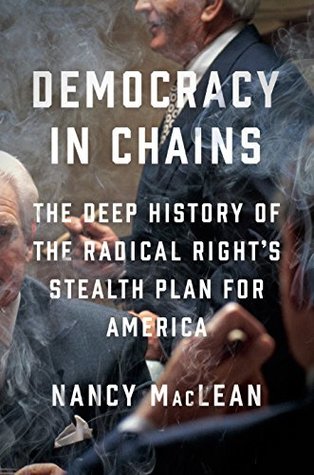If “simple majority voting” allowed the government to impose higher taxes on a dissenting individual in the minority—“the citizen who finds that he must, on fear of punishment, pay taxes for public goods in excess of the amounts that he might voluntarily contribute”—what distinguished that from “the thug who takes his wallet in Central Park?” Why should the well-off, he was asking, be forced to pay for those people, as the popular euphemism put it? “So long as unanimity is violated,” was government action, in fact, truly “legitimate,” even if the people’s representatives were duly elected?
Welcome back. Just a moment while we sign you in to your Goodreads account.


